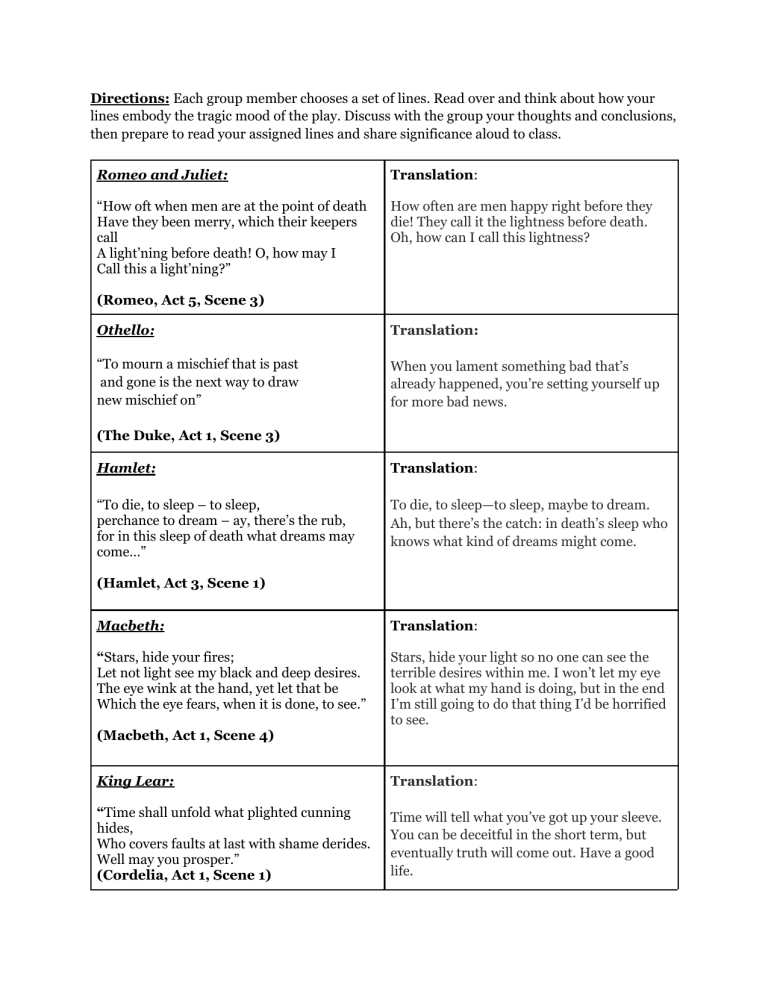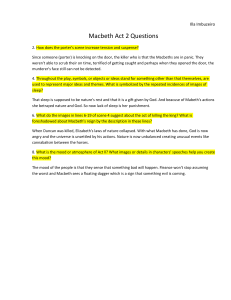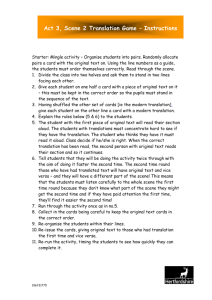
Directions: Each group member chooses a set of lines. Read over and think about how your lines embody the tragic mood of the play. Discuss with the group your thoughts and conclusions, then prepare to read your assigned lines and share significance aloud to class. Romeo and Juliet: Translation: “How oft when men are at the point of death Have they been merry, which their keepers call A light’ning before death! O, how may I Call this a light’ning?” How often are men happy right before they die! They call it the lightness before death. Oh, how can I call this lightness? (Romeo, Act 5, Scene 3) Othello: Translation: “To mourn a mischief that is past and gone is the next way to draw new mischief on” When you lament something bad that’s already happened, you’re setting yourself up for more bad news. (The Duke, Act 1, Scene 3) Hamlet: Translation: “To die, to sleep – to sleep, perchance to dream – ay, there’s the rub, for in this sleep of death what dreams may come…” To die, to sleep—to sleep, maybe to dream. Ah, but there’s the catch: in death’s sleep who knows what kind of dreams might come. (Hamlet, Act 3, Scene 1) Macbeth: Translation: “Stars, hide your fires; Let not light see my black and deep desires. The eye wink at the hand, yet let that be Which the eye fears, when it is done, to see.” Stars, hide your light so no one can see the terrible desires within me. I won’t let my eye look at what my hand is doing, but in the end I’m still going to do that thing I’d be horrified to see. (Macbeth, Act 1, Scene 4) King Lear: Translation: “Time shall unfold what plighted cunning hides, Who covers faults at last with shame derides. Well may you prosper.” (Cordelia, Act 1, Scene 1) Time will tell what you’ve got up your sleeve. You can be deceitful in the short term, but eventually truth will come out. Have a good life.



